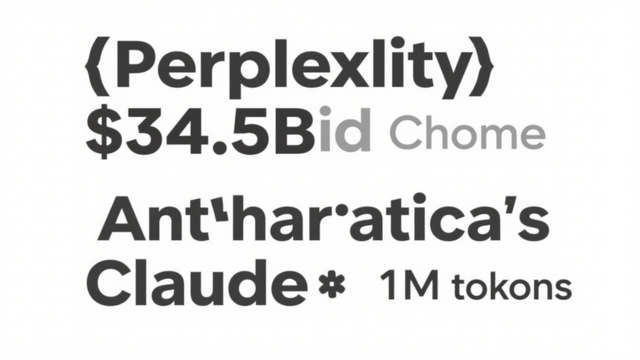AI Trends: Game-Changing Tools, Bold Acquisitions, and Ethical Debates Shaping Tech's Future
1. Perplexity’s Bold $34.5B Bid for Chrome: A Shake-Up in Search and Browser Dominance
In a move that has sent shockwaves through the tech industry, AI search upstart Perplexity has officially made a $34.5 billion cash offer to acquire Google’s Chrome browser. This audacious proposal comes at a critical time for Google, which is currently entangled in antitrust lawsuits that could potentially force it to spin off Chrome—creating a unique window of opportunity for Perplexity.
Perplexity has emphasized that, if the acquisition goes through, it will maintain Chrome’s open-source Chromium foundation, inject additional investment into its development, and even keep Google as the default search engine. While Perplexity’s own valuation pales in comparison to its proposed offer, the move underscores the company’s ambition to reshape the future of web browsing and AI-driven search. For tech enthusiasts and industry watchers across the U.S., South Korea, and India—markets where Chrome holds significant user share—this development raises pivotal questions about competition, innovation, and the future of one of the world’s most widely used digital tools.
2. Anthropic’s Claude Expands Context Window to 1M Tokens: A Boon for Enterprise and Developers
Anthropic has once again pushed the boundaries of AI capabilities with the latest update to its Claude Sonnet 4 model: a massive expansion of its context window to 1 million tokens. This game-changing upgrade means users can now process over 75,000 lines of code or hundreds of documents in a single request—eliminating the need for tedious, fragmented data handling.
The enhancement is particularly valuable for enterprise users in the U.S. (where Claude is popular among tech firms and legal teams), South Korea (a hub for advanced manufacturing and software development), and India (a rapidly growing market for AI-driven enterprise solutions). For developers, data analysts, and legal professionals, this translates to faster workflows, more comprehensive analysis, and the ability to tackle complex tasks—from debugging large-scale codebases to reviewing voluminous legal documents—that were previously impractical for AI models. Anthropic’s move also intensifies competition in the enterprise AI space, offering a strong alternative to rival models and raising the bar for what businesses can expect from generative AI.
.png)
